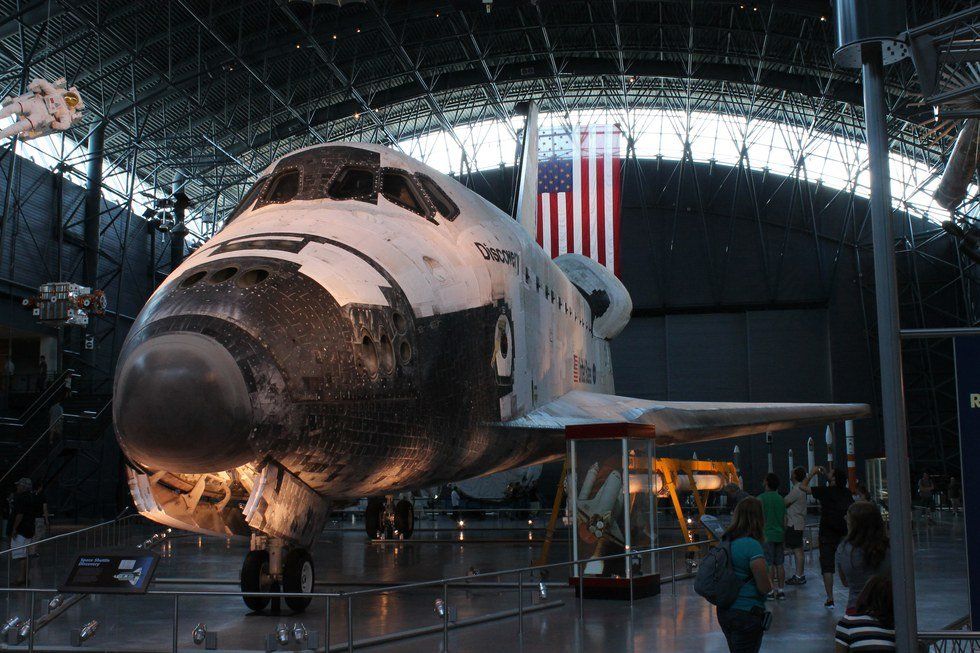The Smithsonian Air and Space Museum in Washington, D.C. has an annex, the Udvar-Hazy Center, near the Dulles airport. The Smithsonian proper is a museum and feels like a museum – displays of various air and spacecraft and exhibits about the use of these vessels in war and exploration. I haven’t been there for years, but I remember how intrigued I felt at the story that was being told.
The Center is a hanger that contains what could not fit into the Smithsonian. World War I planes. World War II planes. Commercial planes. Foreign planes. Helicopters that were used in the Vietnam War and models of the various rovers that have been sent to Mars. It’s incredible – a visible display of a huge and fascinating historical trajectory and a witness to stunning technological development.
There were two displays in particular that caught my eye. On one end of the hanger, amidst early flying contraptions that barely look like planes and elicit instant respect for whoever had the guts to take off in them, is a tiny wooden “plane” that is basically a chair on skids with a single wing attached. I don’t know how said daring pilot was supposed to operate it; there was no sign of a control mechanism, so my guess is it was “hang on for dear life.” On the opposite end of the hanger, in an area specifically devoted to space exploration, is the shuttle Discovery. It’s about half the length of a jetliner, but sitting there in that room, it seemed massive. I just stood and stared at it and as I was staring, it occurred to me, “This thing has been in space." I don’t think I could have been more in awe if I was looking at the Enterprise itself. It wasn’t just the immensity of the space shuttle – either physically or historically – that impressed me; it was also the realization that this spacecraft, built to withstand earth’s atmosphere, equipped to support life, could trace its roots back to that rickety little wooden contraption that was probably airborne for a matter of seconds. The contrast between the two blew me away.
I sometimes wish I was alive when the space program was at its peak. I know that it was a time of uncertainty – of fear, even – and that we as a country had other motivations for space travel than the mere thrill of it. And yet, I can only imagine what it was like for the small child on his or her father’s shoulders when the Wright brothers first took flight to witness, 66 years later, Neil Armstrong’s first step onto the moon. Not many get to experience the making of history twice in one lifetime, or if they do, they are not aware of its import. I don’t think that anyone who was able to witness both the opening chapter of the history of flight and its transition into reaches formerly inaccessible to us was blind to the significance.
If you were to ask me why I like history, I’m not sure I could explain it in so many words. All I know is that there was history in that hanger and it was amazing.




















